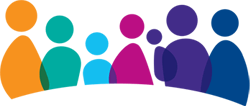Developmental Language Disorder (DLD) is a hidden but common disability that causes difficulties understanding and using language, for no known reason.
DLD occurs in every language around the world and is believed to affect around 1 in 14 people.
As a neurodevelopmental condition, it affects how the brain processes language and affects people regardless of age, gender, language spoken or ethnicity.
‘DLD' is the name for language difficulties in children aged 5 years and above.
‘Developmental Language Disorder’ means that a child has ongoing difficulties with understanding and/or using spoken language. DLD is diagnosed when these language difficulties are not associated with another diagnosis (e.g. autism or a learning disability).
Now in its seventh year, Developmental Language Disorder Day (DLD Day) aims to increase awareness of DLD to help reduce social stigma and improve access to support.
The theme for 2023 is ‘DLD Around the World’ to highlight how DLD is a neurodevelopmental condition affecting how the brain processes language, so it can be found in every country and every language.
The Speech and Language Therapy team at Black Country Healthcare NHS Foundation Trust are supporting DLD Day which returns on Friday 20 October.
The team work with children, young people and families across the Dudley borough.
Speech and Language Therapists fully assess the child’s speech, language and communication skills before a plan is agreed to support the child or young person’s communication skills.
The team work very closely with parents, carers, nursery and school staff and anyone else closely involved with the child.
The Speech and Language Therapy service at BCHFT has an open referral system, which means that anyone, including parents, are able to refer a child if they have an identified speech, language, communication, eating, drinking or swallowing need.
As DLD emerges in early childhood, the team are well placed to spot the signs and work with youngsters to support their needs.
Bethan Wilkes, School Age Clinical Team Lead at the service, explains: “Once DLD is suspected or identified, the appropriate level of support the child or young person requires can be offered. This may include classroom-based strategies (universal support), programmes/interventions to be carried out by school staff (targeted support), and/or further assessment and/or therapy from our department by a Speech and Language Therapist or a Speech and Language Therapy Assistant (specialist support).
“Often, when working with people with DLD, the focus is to provide the appropriate supports and strategies that support the development of self-help skills. This may involve providing the child/young person with the tools to ask for help when they have not understood an instruction; describe words to support their listener to understand their messages and practice social skills (e.g. ordering food in a restaurant)
“Alternatively, we may focus on upskilling those around the child/young person to support the difficulties people with DLD face. For example using visuals to support spoken language used such as a picture of the playground when announcing 'playtime'; giving the person time to process a question or instruction; giving the person time to think of the word they want to use or encouraging them to describe the word if they cannot think of the word.
“This is because DLD is likely to be a lifelong condition, meaning the difficulties faced may never 'go away', but the impact of these difficulties can be lessened with the appropriate supports in place.
“It is important to remember that Speech, Language and Communication Needs (SLCN) are everybody's responsibility!"
To find out more about DLD Day, visit: https://radld.org/dld-awareness-day/

